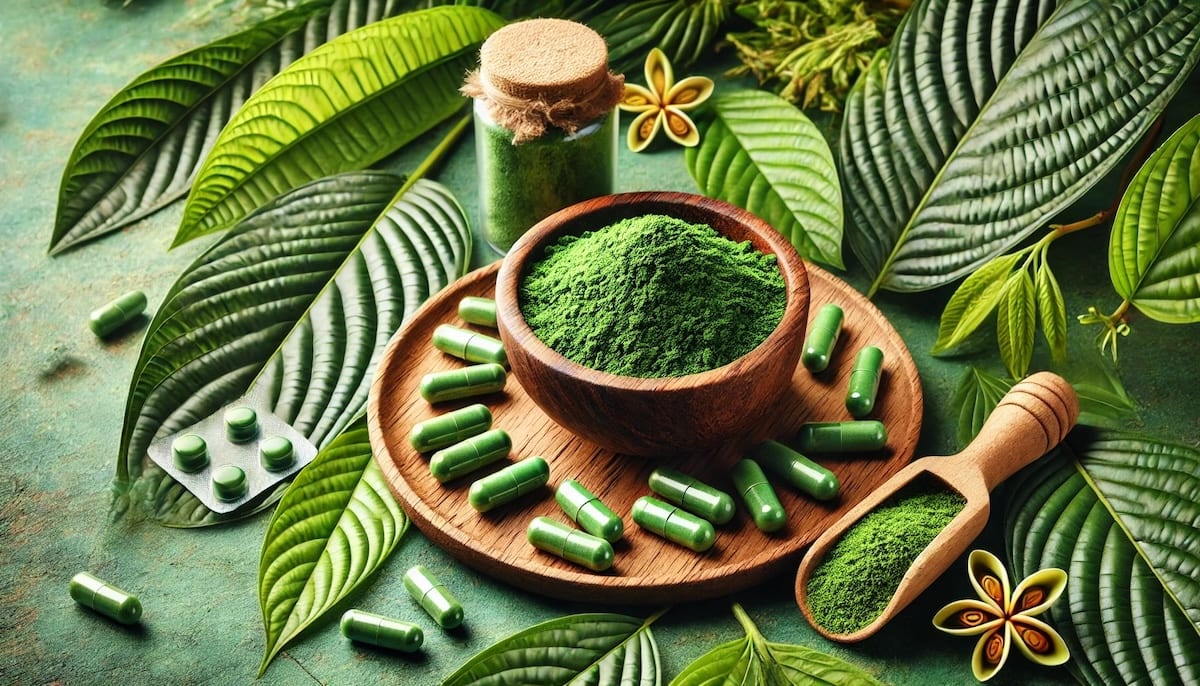If you are struggling to find effective ways to enlighten others about Kratom and its wellness benefits, this article is for you. Just as cannabidiol (CBD) users had to fight misconceptions about cannabinoid products, Kratom users face the same challenges. Kratom use is a recent phenomenon in contemporary Western culture, even though it has been used for medicinal and ceremonial purposes in Southeast Asia for centuries. This article will cover some basic tips for introducing this topic or enlightening folks on Kratom’s history and potential effects.
 What is Kratom?
What is Kratom?
Kratom is also known as ketum, biak biak, Maeng Da, thang, thom, or kakuam. The Kratom plant is cultivated in Southeast Asia. Leaves from the Mitragyna speciosa tree are crushed, processed into a fine powder or extract, and tested for mitragynine levels, contaminants and heavy metals. In states where Kratom is legal, products are available in capsule, powder, and liquid forms. Kratom supports energy levels, well-being and some strains even promote a sense of calm. Many consumers describe the powder’s taste as bitter or earthy, so flavored Kratom products are becoming more popular.
What are Kratom’s benefits?
Ancient cultures used Kratom for its medicinal and recreational purposes. In contemporary times, consumers use it to enhance wellness. Kratom contains roughly 40 alkaloids. The alkaloid mitragynine supports overall energy levels and well-being. Other alkaloids in the plant may also be responsible for promoting wellness.
 What are Kratom’s benefits?
What are Kratom’s benefits?
Ancient cultures used Kratom for its medicinal and recreational purposes. In contemporary times, consumers use it to enhance wellness. Kratom contains roughly 40 alkaloids. The alkaloid mitragynine supports overall energy levels and well-being. Other alkaloids in the plant may also be responsible for promoting wellness.
What are some common misperceptions about Kratom?
In this section, we will review some of the commonly reported statements, myths and questions that reflect a need to increase Kratom awareness and some talking points to help you enlighten others about kratom.
Common Misperception #1: Kratom must have no therapeutic value because the FDA has not approved its use.
Some talking points to address this concern:
The FDA is sometimes slow to approve plant-based products, so they have not made a definitive statement regarding Kratom. More research is needed before any conclusions can be drawn about the safety of Kratom, but an increasing number of reputable medical centers and universities are investigating Kratom’s potential.
Common Misperception #2: Kratom is dangerous for anyone to take.
Some talking points to address this concern:
There is limited research about Kratom use in general, but more is needed to understand the risks. Some research has indicated a potential association with Kratom use, but they also suggest personal factors (health condition, weight, amount of Kratom taken, type of Kratom, and interactions with other substances). Just as many plants, vegetables and mainstream pharmaceutical products can cause an adverse reaction, it is plausible that any ingested substance can cause undesirable outcomes. Always consult with your doctor about the possible interactions between Kratom and other drugs you are taking.
Common Misperception #3: Kratom is addictive.
Some talking points to address this concern:
Many Kratom users believe that it is no more or less addictive than caffeine or other natural substances. Health professionals recommend taking moderate amounts of Kratom just as they should with any substance to avoid overdependence. Kratom products have labels with specific serving recommendations.
Common Misperception #4: Kratom products are often tainted with bacteria.
Some talking points to address this concern:
A recent salmonella scare did affect the Kratom market, but contamination is not a regular occurrence. All fruit and vegetable produce is susceptible to contamination and disease, so Kratom is no more or less likely to be affected than other perishable products. Reputable Kratom companies ensure independent, third-party testing to ensure no pesticides, pollutants, bacteria or heavy metals have tainted the product. Kats Botanicals relies on rigorous testing practices and partners with third-party labs. Customers can scan QR codes to provide a Certificate of Analysis (COA) for each product. To avoid purchasing compromised products, always buy from a company that follows AKA/cGMP state regulatory requirements regarding safety and quality testing.
Helpful Kratom Resources
Here are several sources that will provide those curious about Kratom’s effects with research findings and policy information. They offer some compelling points about the advantages and realities of using kratom. The Kats Kratom Guidebook is a useful resource to share with friends and family who are not familiar with the plant. It provides an overview of the plant, products and uses.
Final Thoughts on Discussing Kratom
People are often skeptical about plant and natural medicines, but you can be an effective advocate for yourself and other Kratom users. Sharing the specific benefits of your Kratom use can help others realize Kratom’s significant therapeutic uses.


 What is Kratom?
What is Kratom? What are Kratom’s benefits?
What are Kratom’s benefits?








